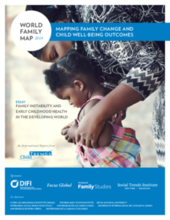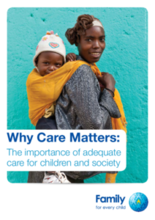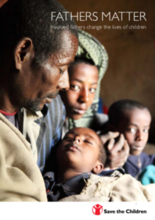Displaying 1091 - 1100 of 1343
The second annual edition of the World Family Map investigates how family characteristics affect children’s healthy development around the globe and includes a new essay focusing on union stability and early childhood health in developing countries.
This report highlights the needs of children without adequate family care, the impact inadequate care on children and society, and why family care is important. In this report, Family for Every Child also issues several recommendations for those in all sectors of society and an example of care reform from Brazil.
This article provides examples from the Christian Bible to suggest that Christianity offers many principles and mandates that promote Christians to protect and nurture children.
This article introduces the series of articles in this issue of the Child Abuse and Neglect Journal which focus on the role of religion and religious communities on children’s care and protection.
This article discusses the challenges in research and practice that have grown out of the evolution of volunteer tourism.
This leaflet is a mapping of Save the children’s role and work in promoting the engagement of fathers. It presents some of the evidence of the benefits of involving fathers and some of the strategies used by the organization and others.
The Child Abuse and Neglect Journal published a special issue on the Positive Role of Religion and Religious Communities in Child Protection.
This article explores some of the ways that Buddhism expresses care for its children.
This introductory article of a Special Issue of Infant Mental Health Journal on Global Research, Practice, and Policy Issues in the Care of Infants and Young Children at Risk provides a useful overview, placing the articles in the broader contexts of research on institutionalized children and different initiatives to prevent inappropriate care, either through addressing the quality of the care provided or ensuring the appropriateness of the type of care environment provided.
This article investigates effectiveness of parenting interventions on reducing harsh and harmful parenting practices in low-to-middle income countries.



